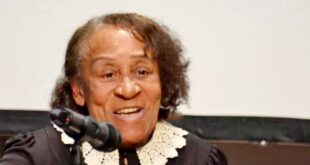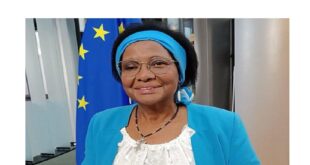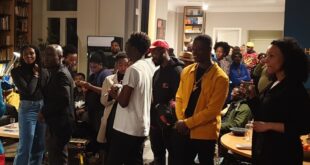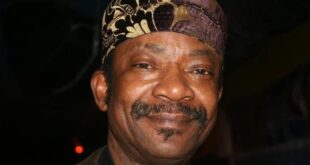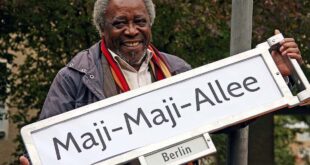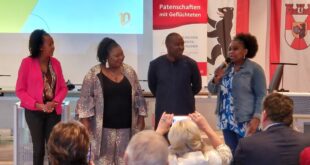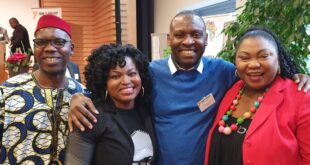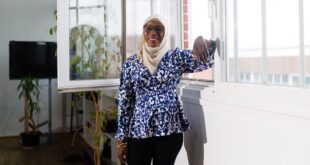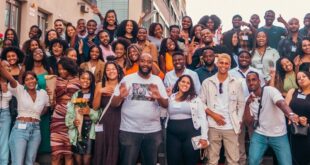The Initiative Schwarze Menschen in Deutschland (Initiative of Black People in Germany or ISD) marked the 30th anniversary of its founding recently. The ISD is the first and the most important group formed by the African diaspora after World War II in this country for the promotion of its interests. Although Blacks have not attained the level of social prominence and influence in the German society that their compatriots have achieved in France or the United Kingdom but the situation is changing.
In an interview with The African Courier, Tahir Della, the Speaker of the ISD, talks about the two politicians of African origin in the Bundestag (Federal Parliament), the state of the Black community today, racism, the migration debate and how relevant the ISD is to the struggle for a more inclusive German society. And we profile ten of Germany’s most prominent Blacks.
Two members of the Bundestag are of African origin. Isn’t that a reason to celebrate?
Well, it’s a reason to celebrate, I would say, even though it is long overdue that the membership of the parliament reflects the diversity of society. Now it is important that the issues that affect Black people are discussed and their perspectives are considered in the decision-making process. It should be said that Karamba Diaby maintains a close contact to the ISD and other Black organisations and gives a voice to their demands in the political debate.
The next step should be for Black people to have a voice in the extra-parliamentary movement.
What is the situation of Black people in Germany today?
We have left the situation of forced facelessness and invisibility and have ensured that the mainstream society can no longer ignore us. The self-image of Germany as a nation that exclusively consists of White people now belongs to the past and our participation in the political process has become a matter of course. The Black perspective has become an inherent part of the debates on racism, German colonial history and critical discussions in almost all political spheres.
What can Black people do to better assert themselves in the society?
Black people are still confronted with all possible forms of discrimination which they must resist. Actually, the questions should be, what must the White mainstream society do to enable Blacks to have the option to identify with Germany?
The current debate on refugees shows how quickly the public mood can turn against people who are classified as “foreign”.
Black people complain about discrimination at the workplace. What can the state do to give equal opportunities to all?
The ISD wrote a parallel report to the federal government’s to the UN Committee on the Elimination of Racial Discrimination last year where we call for official statistics on all forms of discrimination in Germany to be published. Such statistics will make the picture clearer and enable the state to take action to fight and eliminate disadvantages.
The current refugee crisis stirs up popular resentment among White Germans against people of foreign descent. How does that affect people of colour?
Increase in racist attacks and police harassment (racial profiling) which have again provoked the debate of “who belongs to Germany”. It is often forgotten that the European countries were and are still responsible for the political and economic situations in the countries of origin of the refugees. That the restrictive trade policies, the indiscriminate arms trade and the permanent interference in the affairs of these countries, which is a continuation of colonisation, are the actual causes why people are fleeing their homelands. That is why the root causes of the crisis are hardly mentioned in the debate.
Thirty years on, has the ISD justified its existence?
Absolutely and undoubtedly, the past 30 years show that there is a need for a platform for Black people and this will be needed also in the future. The reason is that we are dealing with a 500-year process which led to colonisation and oppression and that could not be reversed in a short time.
The continuously growing community of Black people in Germany will continue to need structures which they can employ to fight for their rights and concerns. Only a self-organised community can independently and self-determinedly speak and act, and in that sense the ISD is ready also in the future to represent the interests of Black people.
 THE AFRICAN COURIER. Reporting Africa and its Diaspora! The African Courier is an international magazine published in Germany to report on Africa and the Diaspora African experience. The first issue of the bimonthly magazine appeared on the newsstands on 15 February 1998. The African Courier is a communication forum for European-African political, economic and cultural exchanges, and a voice for Africa in Europe.
THE AFRICAN COURIER. Reporting Africa and its Diaspora! The African Courier is an international magazine published in Germany to report on Africa and the Diaspora African experience. The first issue of the bimonthly magazine appeared on the newsstands on 15 February 1998. The African Courier is a communication forum for European-African political, economic and cultural exchanges, and a voice for Africa in Europe.



